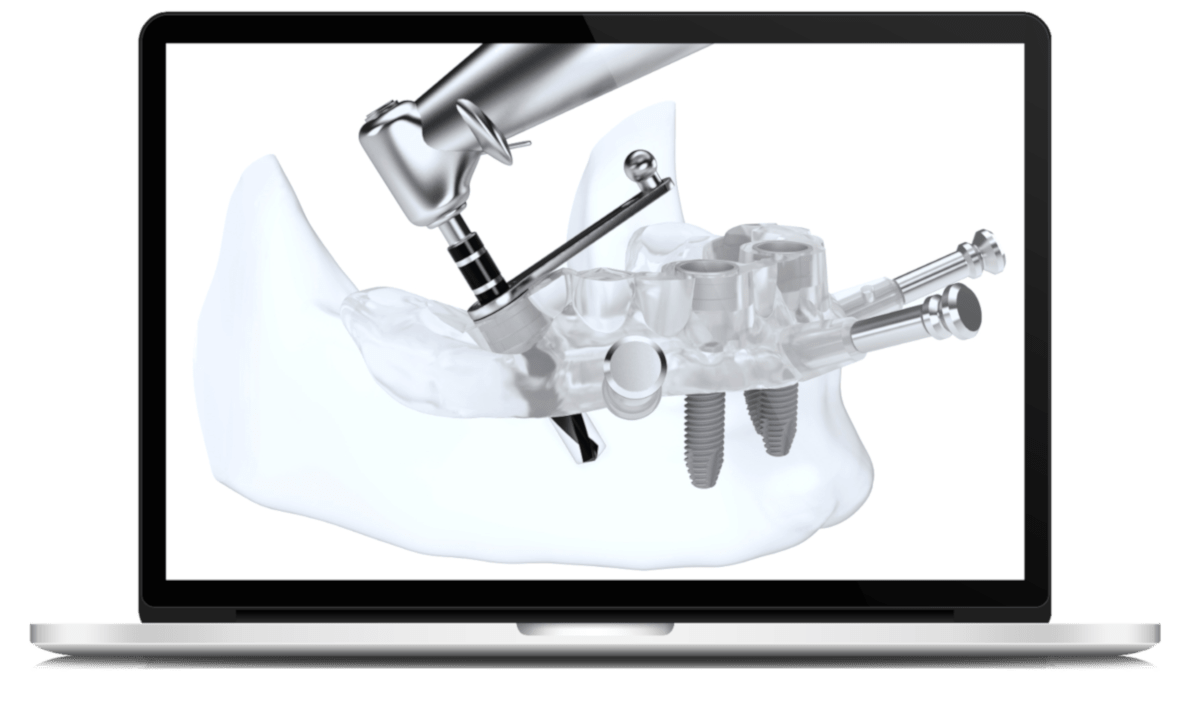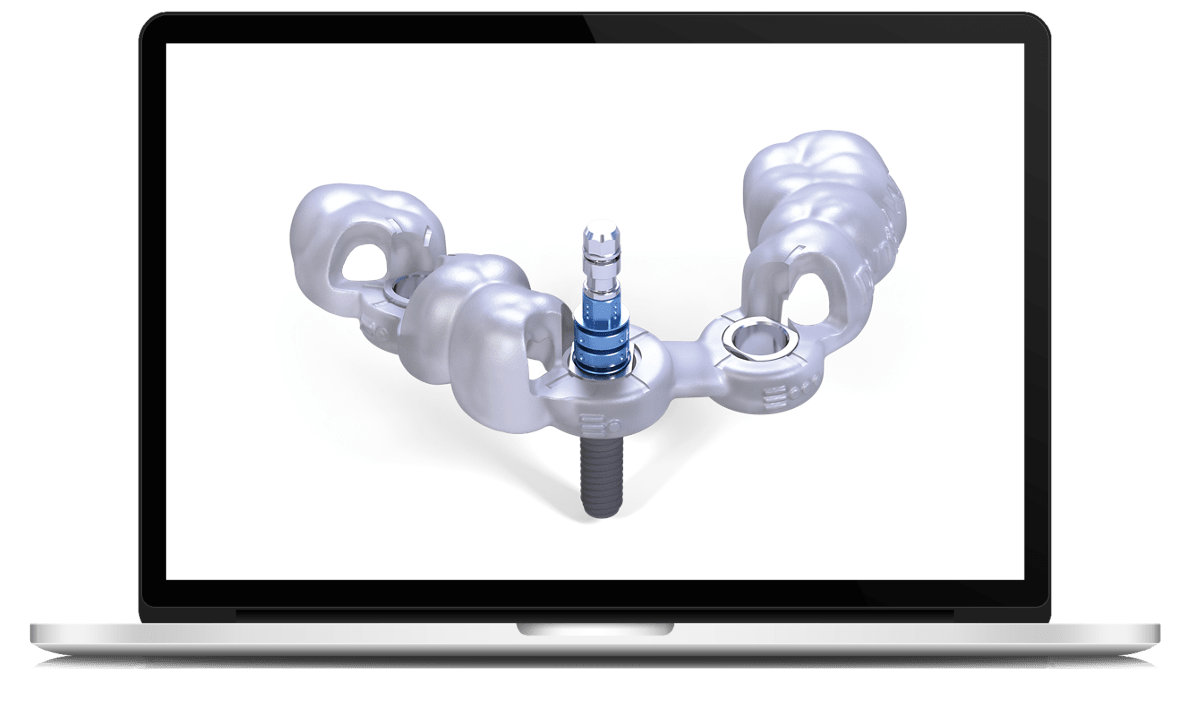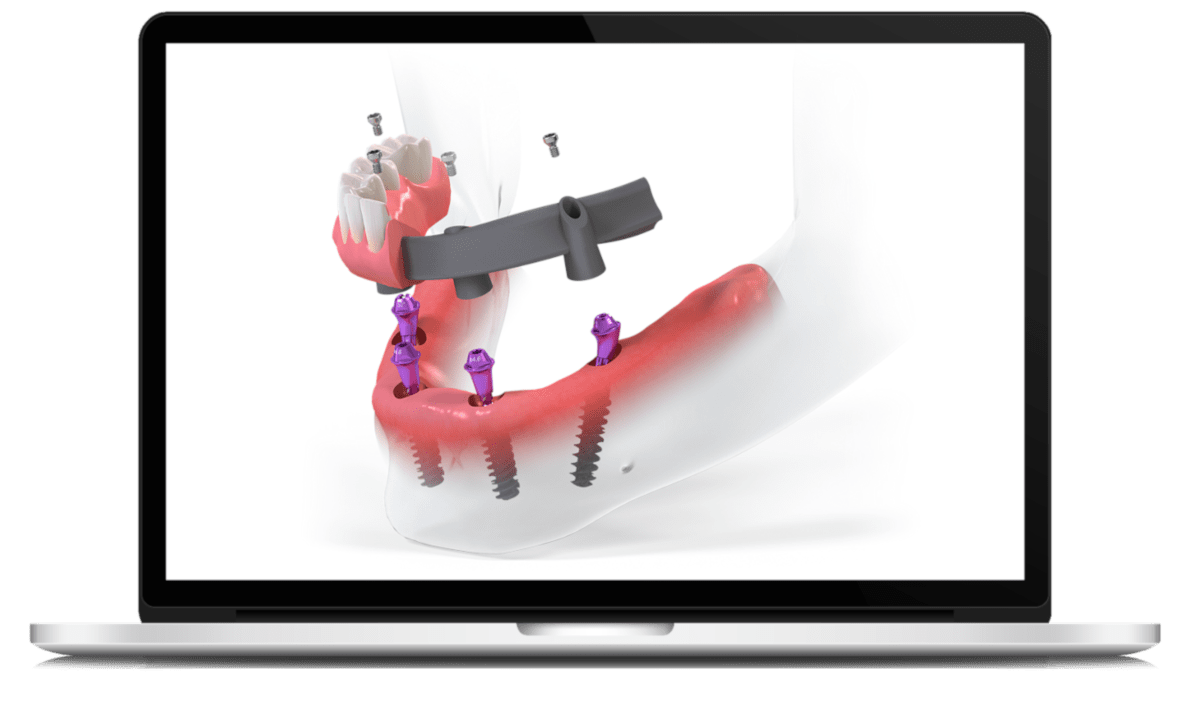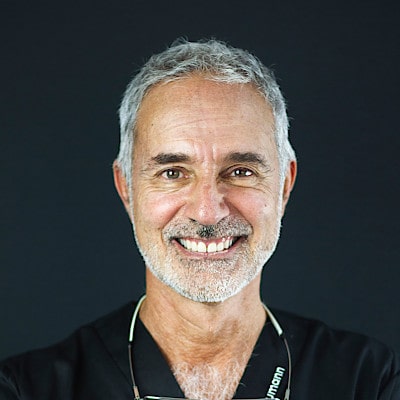
Computer-Guided Implantology
Professional Advice
from Dentists to Dentists
Computer-Guided Implantology
Professional Advice
from Dentists to Dentists









From dentists to dentists
Several colleagues, either because of hearsay or of negative experiences, consider computer-guided implantology to be too imprecise, risky and expensive. This is not the case at all: if every design step is meticulously executed, the accuracy is extremely high. On the other hand, a small inaccuracy in one of the delicate matching phases is enough to determine significant and dangerous discrepancies in the implant positioning. For this reason, it is important for the planning to be carried out by the surgeon himself or by specifically trained professionals. We address those colleagues, who do not want to spend time learning how to use dedicated software but are still interested in taking advantage of guided implantology wide benefits.
As a guarantee to our fellows, we offer our great know-how in the field of computer-guided implantology, after twenty years of clinical experience, together with great rigor, precision and professionalism, which enable us to plan even the most complex cases.
Keyword: PREDICTABILITY
Nowadays, computer-guided planning allows a considerable simplification of complex surgeries, minimizing the possible onset of complications and being excellent support in the implant-prosthetic rehabilitation of the most difficult cases.
Why then, you may wonder, still many colleagues do not regularly use this technology?
Mastery of the dedicated software and confident management of the workflows require commitment and time. For this reason, many colleagues use third-parties’ services that do computer-guided planning. Our service stands out because of our professionalism and experience as dentists, which makes us insiders before being software experts.
In this website, we are trying to explain our daily work in our studio in Genoa, by showing the potential of this great technology.
The importance of planning
We can start working from a Cone Beam (easily transferable online) and a dental impression to plan the implant treatment. By using these basic data, we will be able to produce a surgical template for the guided implants positioning. Then you will just need your guided implantology kit to perform a simple, fast and minimally invasive surgery.
By adding the data on the prosthetic case study (diagnostic wax-up, final preview) it will be possible to offer an optimal result from the surgical, prosthetic and aesthetic point of view even in the most challenging situations.
Furthermore, by downloading a free app on your iPad (link), you will be able to explore the planning simply and intuitively and even benefit from a powerful tool for communicating with the patient.
Offer the best to your patients
One of the strongpoints of computer-guided implantology is the possibility of creating a project by combining information about the bone anatomy, the initial dental situation, and the final preview. In this way, the implants can be positioned with great accuracy in respect of the bone volumes and of the prosthetic area. Moreover, the arrangement and standing of the abutments can be planned and the provisional teeth shape can be determined, adapting them perfectly to the implant position.
All this translates into several clinical indications to support the considerable advantages of the guided surgery included but not limited to the following situations:
Implantology in post-extraction sites and case of bone defects: the use of the surgical template tightly guides the drill along the predetermined axis, preventing it from sliding towards the weakest areas and allowing the optimal implant positioning
Immediate prosthesis and immediate loading: the precise planning allows an ideal placement of the prosthetic screws’ holes and a drastic reduction in the surgery execution time
Use of titled implants to avoid anatomical obstacles: it allows the rehabilitation of patients with reduced bone support and avoids the regenerative surgery that is expensive in terms of time, money and comfort for the patient. During the design phase, it is also feasible to determine the direction and the standing of the angled abutments to obtain a screw-retained prosthesis, without having to compromise
Lateral sinus lift: the computer planning allows to identify and narrow the exact point where to perform surgery to simplify and to make this procedure safer
Flapless surgery: the guided implantology high precision allows, in selected cases and in the presence of sufficient keratinized gingiva, to access the implant site without having to lift a flap. This significantly reduce the invasiveness, improving the patients’ recovery and making the surgery feasible for sensitive people (phobic patients or subjects with coagulation issues or with systemic diseases)

Graduated in 1988 in Genoa. Active Member of IAO (Italian Academy of Osseointegration) and IAED (Italian Academy of Esthetic Dentistry). ITI Fellow and Member of ITI Italian Section Leadership Team. Private practice in Genoa since 1992.

Graduated in 2017 in Genoa. Researcher at the Department of Surgical Science at the University of Genoa. Currently attending the Master in Implantology at the Dental School of the University of Torino. Private practice in Genoa since 2018.
We use Dental Wings' coDiagnostiX® software, a versatile program compatible with all open-source digital scanners, intraoral or extraoral, and which boasts a library with more than 9500 implants from over 80 implant companies.
You can download on your iPad a view-only version of the projects, in order to share and discuss the treatment plans with the patients.
